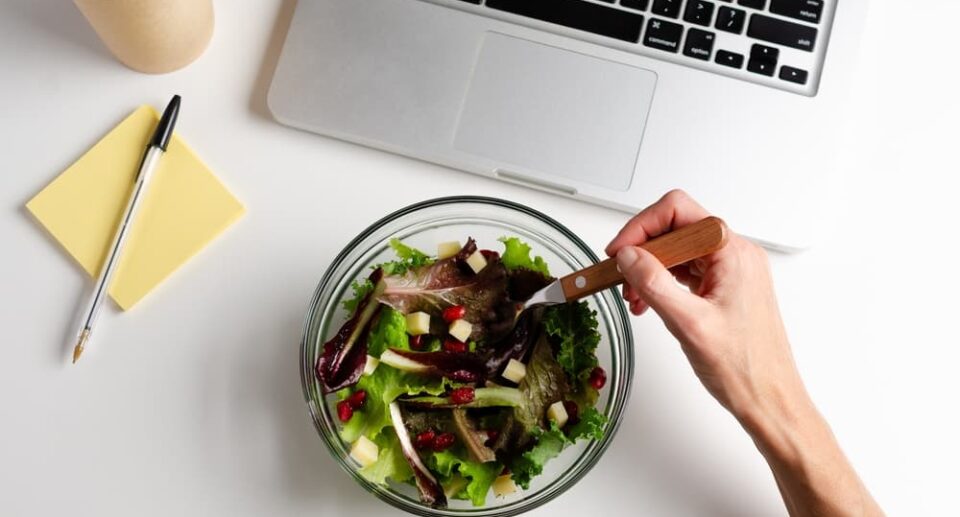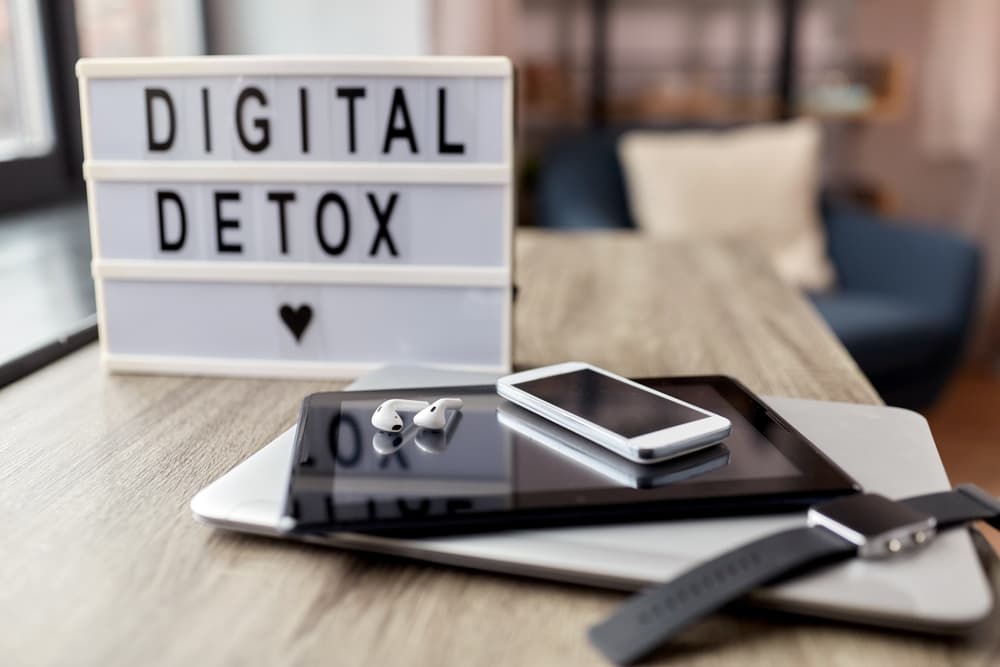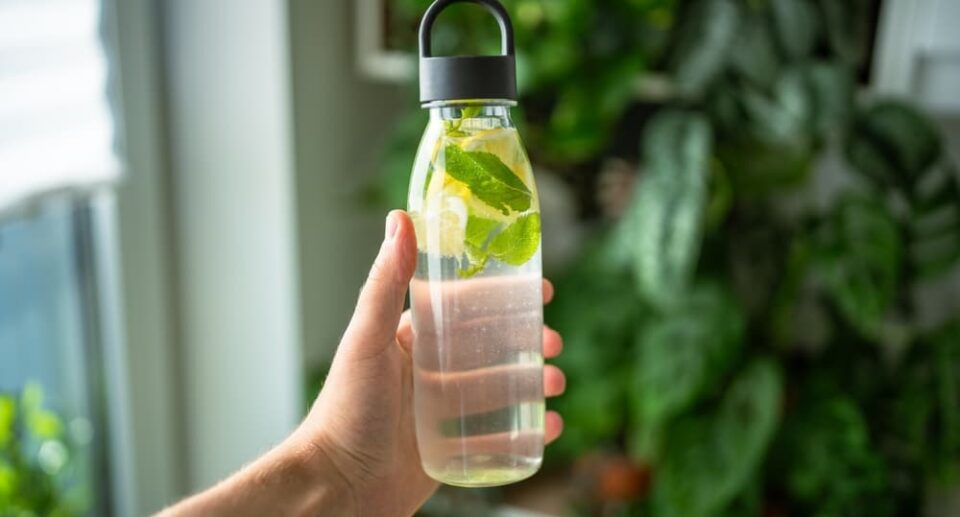How to maintain a healthy diet with a 9-5 job


In our busy lives, we have to work from 9 am to 5 pm. Sitting at a desk for long hours, meetings, deadlines, and fatigue all make it difficult for us to maintain a healthy diet. However, with proper planning and adopting some simple habits, it is possible to balance work life and a healthy diet together.
How to prepare quick and nutritious meals, which foods to keep on your desk, and how to control your diet even during work pressure.
Planning and preparation
Make time during the week for meal prep: Set aside just 2-3 hours on holidays. During this time, prepare some basic ingredients for the coming week. For example:
Prepare protein: Boil eggs or cook grilled chicken, fish breast, and keep it in the fridge.
Carbs and fiber: Boil brown rice, quinoa, or lentils in large quantities.
Chop vegetables: Cut cucumbers, carrots for salads, or broccoli for boiling and store in airtight containers.
Smart Shopping and Desk Snacks: Stick to a healthy food list while shopping. Always keep some non-perishable snacks in your office desk drawer or bag. For example: almonds, walnuts, seeds, or dark chocolate.
Prepare to stay hydrated: Fill your personal water bottle before coming to work in the morning to drink enough water. Add lemon slices or mint leaves to it for flavor.
Workday routine
1. Breakfast
Breakfast is the key to starting your metabolism and storing energy for the day. It should not be skipped under any excuse.
Quick option: If you are short on time in the morning, a protein-rich smoothie can be the best solution. If you prepare it the night before, you just need to take it out of the fridge in the morning.
At the office desk: If the office has a microwave or kettle, bring oats, seeds, and dried fruits with you. A nutritious breakfast can be easily made by mixing hot water or milk.
2. Lunch
The most common mistake is usually made at lunch. The only way to avoid outside food or fast food is to bring tiffin from home.
Use Meal Prep: Use your meal prep food prepared the day before or on the weekend for lunch. This will save you from excess calories and unhealthy fats.
Proper Plating: Always keep a balance of protein, fiber, and complex carbohydrates in the lunch menu. This will help you stay full for a long time and help you avoid afternoon drowsiness.
3. Stay hydrated


Many times, even when you feel thirsty, the brain mistakenly sends hunger signals. So, avoiding dehydration means refraining from eating excessive snacks. Keep a large water bottle on your desk while working. Drink small amounts of water every hour. You can set a target to finish one bottle before lunch and another bottle after lunch.
Caffeine control: Limit the amount of caffeinated drinks like coffee or tea. Drinking too much of these can lead to dehydration and disrupt sleep.
4. Afternoon snacks
According to the American Heart Association, eating every three to five hours helps control hunger. Snacks high in fiber and protein help keep you full for longer.
Your energy levels usually start to dip around 4 pm. This is when your brain is looking for a quick sugar boost.
Smarter options: Instead of sugary biscuits or fried snacks, eat healthy snacks like a mix of nuts or seeds, fruit, or a small bowl of yogurt that you keep in your desk drawer.
Mentality and Environment
Stress Eating


Many people unconsciously start overeating due to job pressure and office tension. This is stress eating. At this time, we are usually more attracted to fried, sweet, or junk food, which, although it provides temporary relief, harms the body in the long run.
To avoid stress eating, you first need to identify when or in what situation you want to eat more. At that time, taking short breaks to drink water, walking for a few minutes, or practicing deep breathing can help. In addition, keeping healthy snacks such as nuts, fruits, or yogurt on the desk can be a good option.
Office Environment
Visibility Control
It is difficult to control cravings when unhealthy foods or snacks are in front of your eyes. So use this strategy to avoid it:
Make it invisible: Do not keep any excess sugary or processed snacks on your desk or within reach. If a colleague’s birthday cake or sweets come, keep them away. What you cannot see will not tempt you easily.
Keep healthy snacks visible: Instead, keep fruits, nuts, or a bottle of water on your desk or in front of you. This will help your brain quickly choose the healthier option when you feel hungry.
Dealing with social pressure
Office social chats or peer pressure can ruin your diet.
Say a firm ‘no’: If someone offers you sweets or fast food, politely say no firmly. You can say, ‘Thank you, my lunch is packed.’ Make your healthy choices important.
Create a positive impact: If possible, start a healthy lunch club with your colleagues. This way, everyone can share healthy meals they have prepared and inspire each other.
Healthy dinners at night
Quick cooking techniques: Choose recipes that can be cooked quickly with all the ingredients in one pot, such as easy khichdi or a vegetable casserole made with a variety of vegetables, rice, and protein.
Use meal prep: Use cooked proteins or chopped vegetables that you have prepared during the week. Just lightly sauté them for a short time, and dinner is ready.
What to eat for dinner


Maintain balance: Arrange your dinner plate in such a way that about half of the plate is filled with fiber-rich vegetables, one-fourth is lean protein, and the remaining one-fourth is complex carbohydrates.
Give importance to salads: If you want to eat something light at night, eat a large bowl of salad without dressing or with very little dressing. Mix fruits, vegetables, boiled eggs, or chickpeas in it.
Stick to the time
Always finish dinner at least 2 to 3 hours before going to bed. This gives the food enough time to digest. Lying down immediately after eating can cause acidity or sleep disturbance.
Eat a smaller portion for dinner than for other meals during the day. The body is less active at night, so it does not need extra calories.
FAQ
Q1: How can I avoid unhealthy snacking during office hours?
A1: Keep healthy options like nuts, fruits, or yogurt at your desk. Staying hydrated and eating balanced meals on time can also reduce cravings for junk food.
Q2: What is the best way to plan meals for a busy 9-5 schedule?
A2: Meal prepping on weekends, packing home-cooked lunches, and setting reminders for regular meals help you maintain a healthy diet despite a hectic routine.
Key takeway How to maintain a healthy diet with a 9-5 job
Maintaining a healthy diet in a 9-to-5 working life is a bit difficult. But it is not impossible if you want it. It just requires a little planning, preparation, and mental control.
Remember, good health is not a one-day task; it is a habit. Make a habit of weekly meal prep; it will save you time and keep you away from unhealthy food cravings. Always keep healthy snacks at your desk and drink enough water during the day. When work pressure increases, instead of reaching for food, use alternative stress management techniques .
Stay healthy, work beautifully. May your 9-5 life be a symbol of good health and success.









